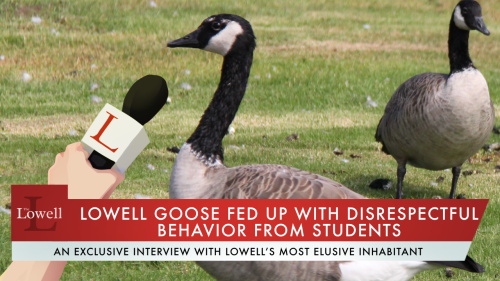Power to the press
2019’s World Press Freedom Index, compiled each year by Reporters Without Borders, came with a shock to the United States. For the first time, our country was categorized as “problematic” for journalists, ranked number 48, below countries such as Botswana, where the main press sources are owned by the state and controlled by the government.
While this news is disturbing, it doesn’t seem unreasonable amidst the accusations of “fake news” and President Trump’s description of the press as “the enemy of the people.” Journalists continuously face the risk of being arrested or physically assaulted for doing their jobs, and national law offers little protection for journalists from being forced to disclose confidential information and sources. Some reporters covering sensitive international issues have even been prevented from returning to the United States.
Distrust of the media, fostered by influential political figures such as Trump, can have real consequences, not only for journalists, but for ordinary people. Lately it feels as if we’ve been submersed in a world that’s forgotten the difference between facts and opinions, where objective reality is politicized and undermined by fear.
In the aftermath of Sandy Hook, talk show host Alex Jones popularized the idea that the shooting was a hoax, leading to the continuous harassment of victims’ parents. Parents, spurred by distrust of the media and science itself, have stopped vaccinating their children, posing a very real threat not only to their own children, but the children of those around them. Climate change, an issue that threatens the very survival of life on Earth, has been called a widespread conspiracy by the very people with the power to fix or at least mitigate the problem. This is what happens when we stop trusting the press: instead of taking action or debating the best way to solve important issues, we spend time and energy simply trying to prove that they are, in fact, issues.
Freedom of the press is absolutely imperative for a functioning democracy. It’s the right to objective truth and and knowledge, the hope of working towards something better; it’s one of the fundamental building blocks that our country was founded on. This is not a partisan issue; this is the foundation of our rights to speak freely, to be informed and to form our own educated opinions.
Throughout American history, the press has been a balancing force for our administration, corporations and others who hold substantial power. The obvious example of this is Watergate, in which investigative reporters revealed corruption by the Nixon administration. Muckrakers also spurred significant reform in monopolies such as Standard Oil and the meatpacking industry. Ed Murrow, an influential broadcaster, criticized Joseph McCarthy and the Red Scare, virtuality ending McCarthy’s reign of political terror.
Not only does the press play a highly significant role in checking those in power, it can also affect the way people view and treat others, inspire activism and humanize current issues. Journalists shoulder the crucial role of transforming distant, depersonalized events into human stories with faces and names.
Failing to provide such humanization allows heinous acts of cruelty to go unchecked. Victims of slavery and the Holocaust were stripped of their identities, and empathy was cast aside in favor of human rights abuses. According to the History News Network, coverage of the holocaust in America was severely lacking, rarely making the front page and failing to rally support that could have helped stopped the atrocities much sooner. This was both due to a failure of the press and efforts by the Roosevelt administration to subdue coverage. We cannot afford to let this happen again.
While journalists are not the only line of defense against a repetition of these horrors– and the world is still filled with atrocities–journalists play a key role in not only keeping people informed, but affecting the way they view and treat each other.







